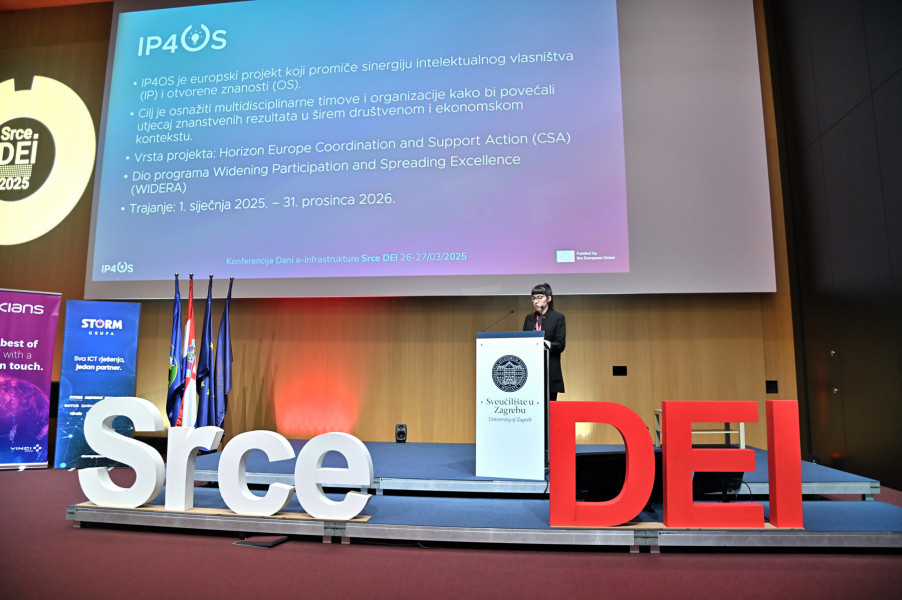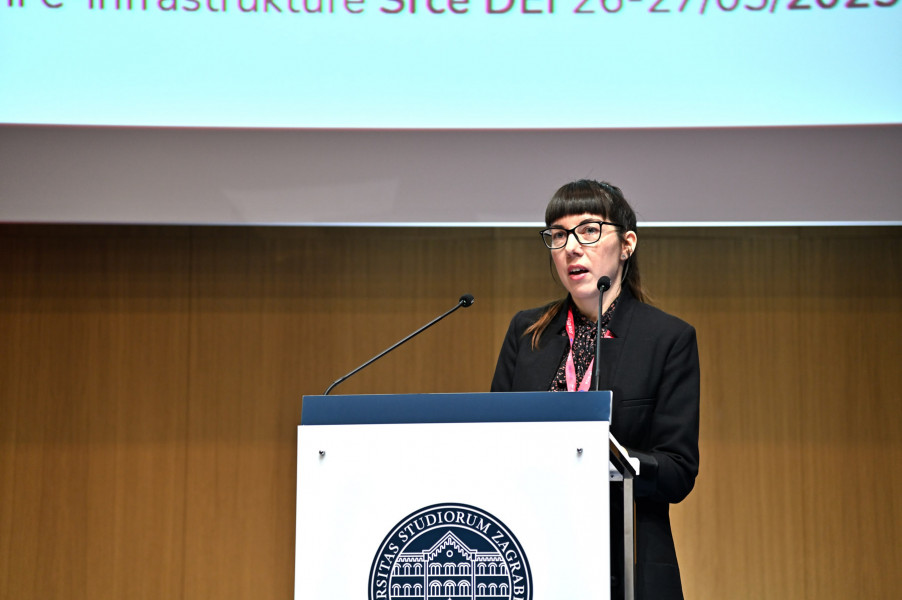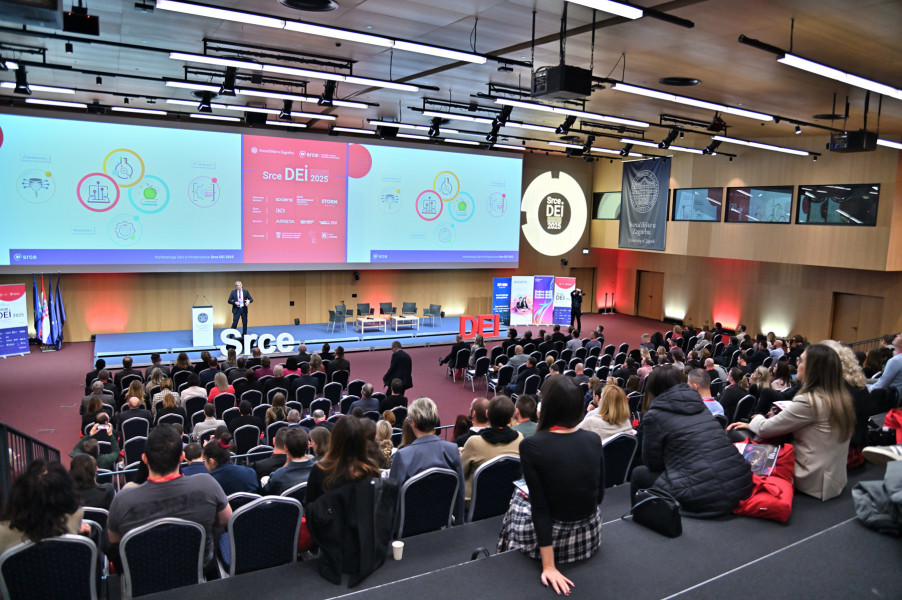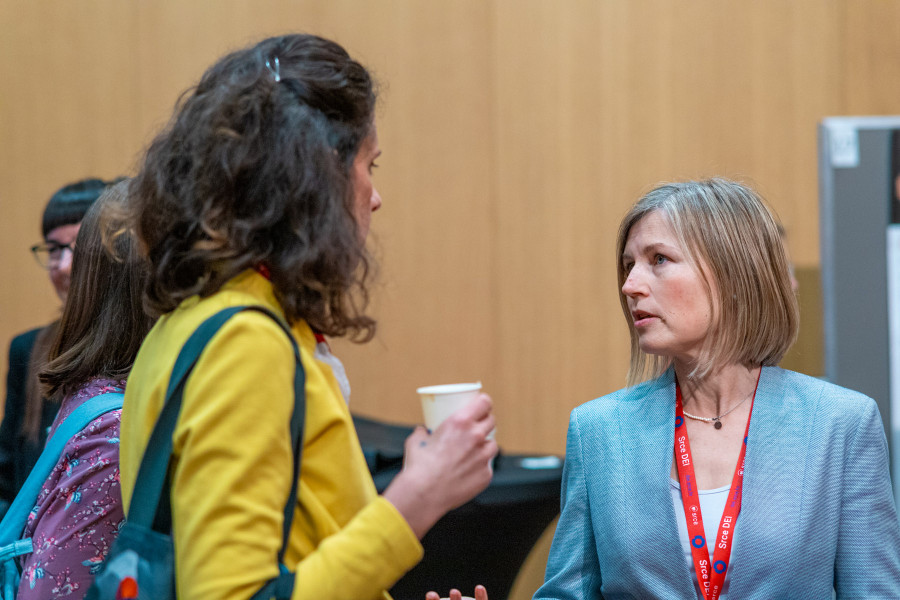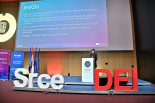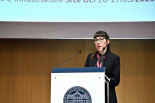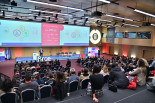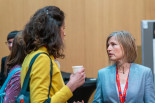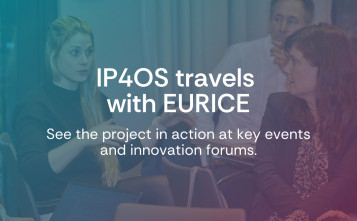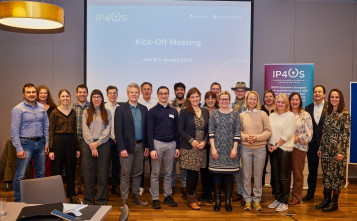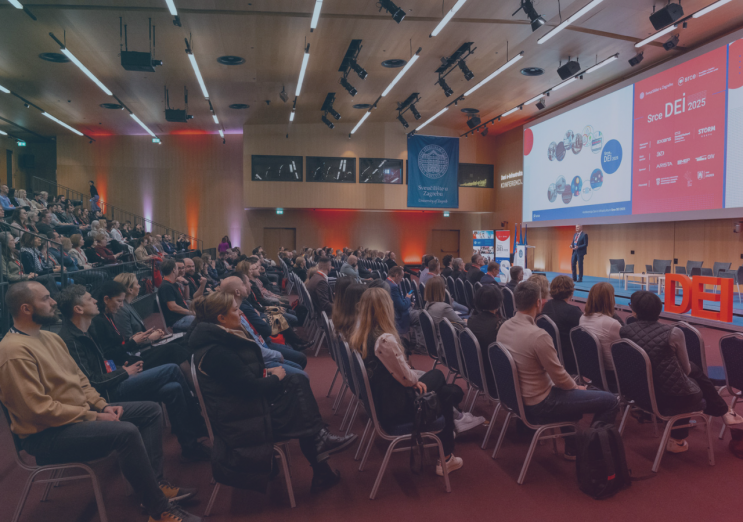
Croatia’s academic and tech community hears from IP4OS
On March 26th and 27th, the academic and tech community in Croatia converged at the SEECEL building in Zagreb for the annual conference DEI organised by the University of Zagreb Computing Centre (SRCE). With more than 400 participants in attendance, the event served as a meeting ground for university administrators, IT professionals, researchers, librarians, educators, and many others engaged in the science and higher education ecosystem. The IP4OS project was represented at the event by our partners from the University of Zagreb School of Medicine (UZSM).
The SRCE DEI conference featured an extensive programme structured around nine thematic blocks. Both days were filled with workshops, lectures, and presentations covering a wide range of topics, from quantum communication and cybersecurity to open science, digital education, and the role of repositories in research sharing.
Day one of the event was dedicated to a diverse mix of topics, including the integration of artificial intelligence at the University of Zagreb, the critical importance of cybersecurity in educational institutions, and the infrastructural shifts reshaping research and learning environments. Highlights from the day included a panel discussion titled „Disruptive Technologies as Drivers of Change“ and a guest lecture by Dr. Sc. Nils Wediand on "Implementing Digital Twin Technology of the Earth System in Destination Earth".
While the first day leaned more toward digital transformation and the evolving role of technology within academia, the second day shifted its attention to higher education and open science. Key points from the day were a presentation on "New Leadership for New Digital Education Scenarios" by Prof. Dr. Sc. Albert Sangrà, who analysed the immediate challenges facing higher education institutions in the digital age, and a series of presentations of diverse project activities and best practices including an IP4OS project presentation delivered by our project partners, UZSM.
The presentation, titled “IP4OS - Unpacking the Possibilities of Intellectual Properties for Open Science” and held by Iva Čizmin, introduced the audience to the core goals of IP4OS, the institutions involved, and the wider vision for the Synergy Framework - a practical guide for aligning Intellectual Property with Open Science. The UZSM team used the opportunity to inform participants about the social media channels of IP4OS, where all important project updates are shared, and invited them to take part in the IP4OS Best Practice Survey, which will be used for the development of the Synergy Framework.
For the IP4OS team, the participation at the conference proved to be a very rewarding experience, which allowed us to see where we stand in comparison to similar projects and to recognise the growing network of like-minded innovators in open science. It also opened up valuable networking opportunities with representatives from information centres and universities.
